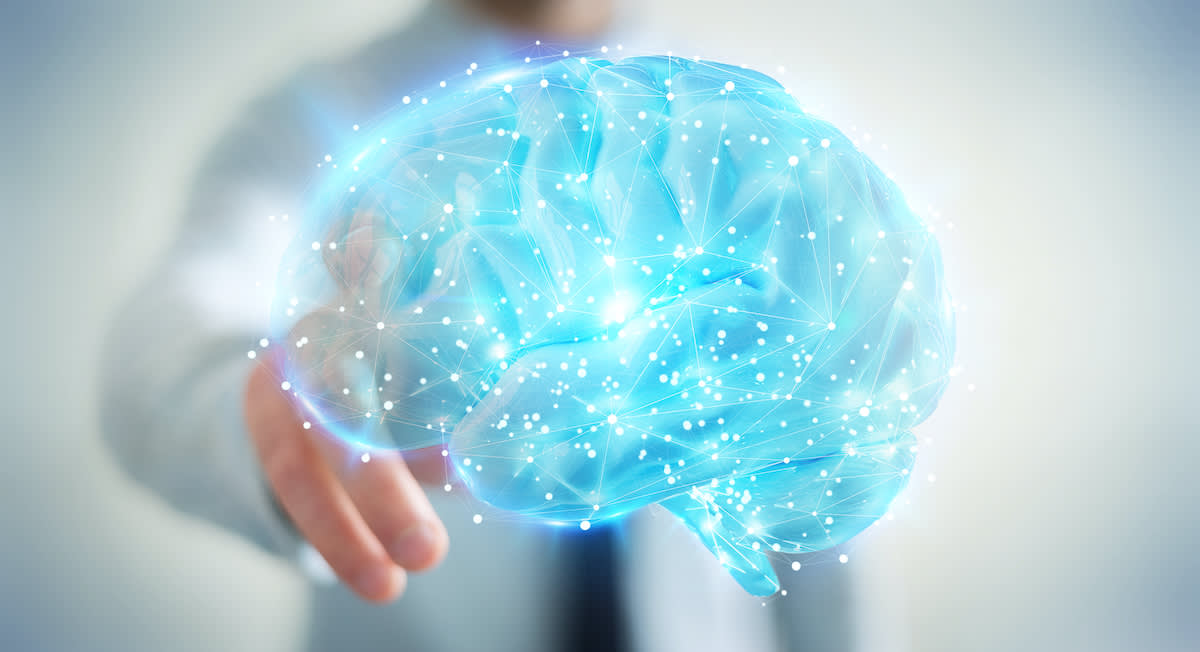
The Truth About Gut Health and Mental Health
Welcome to a new decade in the new millennium, where we’re finally becoming more open and honest about how we feel when depression rolls in. It may be that our minds are finally becoming more aware of the concept of mental health, or maybe being in a global pandemic has made it a more predominant issue.1 As we faced a whole new world once COVID-19 hit our shores, mental health around the nation took a steep nosedive. For years to come, researchers will be studying the impact of COVID-19 on mental health long-term, including what supported people during such trying times. How our body responds to external stress can say a lot about our ability to face adversity. But is there a way to make our bodies more resilient to challenges? And can nutrition play a role in how capable you are of overcoming mental health disorders?
Changing How We View Mental Health
It really wasn’t all that long ago that physicians didn’t view disorders like ‘depression,’ ‘anxiety,’ and ‘PTSD’ as illnesses. But we’ve come a long way, including finally acknowledging that these conditions can be - and are - often just as harmful as other physical ailments.
That’s partly because there is a very real, physical side to mental health conditions. Scientists no longer see them as completely isolated to the brain. In reality, these conditions have physiological symptoms throughout the body that can be tracked and monitored with medical testing.
And if that doesn’t convince you - some research has even shown how making changes to your physiology can actually reverse these symptoms.
Case in Point: The Gut Microbiome
You’ve probably heard about the Gut-Brain Axis, or that incredible bi-directional connection that ties our digestive system straight to the brain. This connection is facilitated by the vagus nerve, an impressive tool that transmits signals from the brain to the gut and back again, and also acts as a road for traveling microbes that have breached the gut and made their way into the rest of the body.
But microbes don’t ordinarily travel this route. They’re actually supposed to stay in specifically designated areas. Our microbiome system starts from the outside of our skin and connects through our nasal and oral cavities, ultimately traveling down to the rest of our digestive tract. Some areas of our body connected to the outside world also have their own microbiome - like the vaginal cavity or even the lungs. Hence - microbes don’t normally just float around our body. When they do, it actually isn’t that great and causes our immune system to respond, activating immune cells and initiating inflammation to sites where microbes are detected.
That’s partly because though many of these microbes may be commensal and beneficial in the context of our gut, outside it they can do a ton of harm. For example, many microbes secrete waste products that can be quite toxic to our surrounding tissues. If you thought our immune cells were just responding to their existence, you’d be wrong. Sometimes they’re trying to counteract the biotoxins they produce to prevent them from doing more damage!
And when your body is suddenly flooded with bacteria that don’t belong, it can be hard to keep your immune system on track, and then presto - you have a serious inflammation problem.
Inflammation at the Source
Sometimes we are our own worst enemy. That might be the case if you’re unintentionally self-sabotaging, but it can happen on a biological level, too. Chronic inflammation typically stems from an overactive immune system. As it grows, what was originally created to protect can have some damaging consequences. Our immune system is made to break down any imposing threat, and it’s evolved a variety of ways to take out pathogens.
These same ways are often where we get ourselves into trouble.
But what happens inside you that promotes these changes to your gut, or stimulates inflammation?
When microbes break through the barrier in your intestinal lining and ‘walk’ their way up this Gut-Brain Axis, our immune system jumps into action. In most cases, it’s leaky gut syndrome that is to blame. When our gut microbiome isn’t balanced, we don’t do a great job of keeping up the health of our gut lining. That’s because many commensal microbes in our gut help generate butyrate that feeds and supports our intestinal cells. These beneficial microbes also provide preventative care that keeps out harmful bacteria that may pose a threat to these cells - but when our gut microbiome is disrupted, our intestinal lining doesn’t receive that support. In turn, the cells may start to decay - and our intestinal lining is only made of a very thin layer of cells. This leads to ‘gaps’ in that lining where microbes and toxic waste products typically kept inside the gut begin to leak out.
Studies have shown that leaky gut syndrome may be causing a number of conditions - but recently scientists are seeing that it may have a very close relationship with the health of our brain.[2,]3
It’s Probably Just Stress, Right?
The more we learn about those who suffer from depression, anxiety, and other mental illnesses, the more we learn about how closely related the health of our mind is to the health of our body. There is a very close relationship between our brain and body that influences our ability to fight off infection and support healthy, normal bodily function.
Whether your mental health is stress-related, environmentally imposed, or biologically derived - poor mental health puts you at risk. In fact, the World Health Organization (WHO) has determined that depression is a leading cause of disability worldwide and is a major contributor to the overall global burden of disease.4
That’s why finding ways to support your internal health - both mentally and physically - and improve your body’s natural resilience is of the utmost importance to us at Viome.
As part of our mission, we’re looking to set out a path that uncovers the root of chronic diseases and works to identify what the body needs early on in order to prevent and even reverse them. That includes mental health conditions. Over time we’ve learned a lot about how to support the body’s ability to heal itself.
Not to mention, we’re accumulating the scientific data to support it.
At Viome Life Sciences - our scientific research initiative - we’re constantly developing new clinical studies that examine how our recommendations improve the lives of real people, with real conditions.
And We’re Seeing Incredible Results
Just this April, some of our top scientists at Viome published a scientific article noting significantly decreased symptoms in various mental conditions. By following Viome’s precision nutrition recommendations, we found that 36% of severe cases of depression and 40% of severe cases of anxiety were improved. That is on top of the improvements we found in inflammatory bowel syndrome and type 2 diabetes.5
It’s a reminder of how interconnected our bodies are with every individual piece of the puzzle - and how the foods we eat determine how well those pieces stick together. And as we continue to research, evaluate, and improve, Viome will only get better at helping people like you fight for the future of optimal health for all.
Resources:
1 https://jamanetwork.com/journals/jamanetworkopen/fullarticle/2770146
2 https://www.ncbi.nlm.nih.gov/pmc/articles/PMC6996528/
3 https://www.ncbi.nlm.nih.gov/pmc/articles/PMC5641835/
4 https://www.who.int/news-room/fact-sheets/detail/depression
5 https://www.biorxiv.org/content/10.1101/2021.04.24.441290v1



